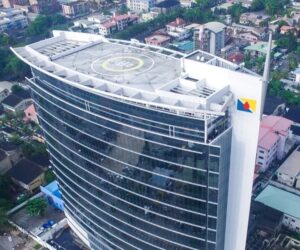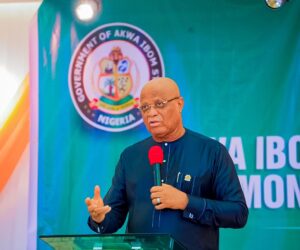The Jos Metropolitan Development Board (JMDB) has explained its role in a controversial land transaction in Plateau State that has pitched a serving state lawmaker, Adamu Aliyu, and a businessman, Abdulyekin Kabiru, against each other.
The dispute centres on a parcel of land in Gangare, Jos North Local Government Area, which once served as the board’s mechanical workshop before it was vandalised during the city’s violent crises years ago.
How the land was leased
Officials said that after the site became derelict, a woman began using the premises for weddings and later converted it into a school. JMDB opposed this, saying the location was unsafe for a school. “We wrote to her to vacate, but she refused,” the Director of Estate and Building at JMDB, Barnabas Dafiel, told PREMIUM TIMES.
Mr Dafiel said the board decided to lease the property for development since the government lacked funds to rehabilitate it.
He said on Sunday that the board granted a 34-year lease to Hassanta & Sons Multi-Biz Dimension Ltd, owned by businessman Hassan Maimadara. The arrangement, he added, was to allow the company to build an estate consisting of seven blocks of two and three-bedroom flats, after which ownership would revert to the government in 2058.
“The Ministry of Justice prepared the agreement. Our intention was that by the end of the lease, our staff could also use the estate as quarters,” Mr Dafiel said.
He confirmed that the lawmaker representing the area, Adamu Aliyu, introduced Hassanta Ltd to the board.
Mr Maimadara provided his company’s registration documents, tax clearance, architectural designs and a proposal before an approval was granted.
Alleged sublease to a businessman
However, even before securing final approval, Messrs Aliyu and Mr Maimadara allegedly began seeking to transfer the property to another investor.
They approached a businessman, Abdulyekin Kabiru of Reedlim Global Enterprises, claiming they had the Plateau State government’s authority to dispose of the land. Mr Kabiru, in a petition to the anti-graft agency ICPC, said he agreed to buy the property for N50 million but was pressured into paying much more.
“Before I could make payment, I demanded the title documents of the property or the authority letter that mandated the lawmaker with the property. Because I told him that I will not pay any amount until I see the document, the lawmaker made a U-turn and then said the property can only be transferred to me on lease for some years and that there will be a specification as to the type of development I can carry on in the property,” he said.
The businessman said he eventually transferred N75.84 million in tranches into accounts linked to Mr Maimadara’s company and Mr Aliyu’s personal account.
But JMDB insists the transaction was illegal.
“As part of the lease agreement, Hassanta Ltd is not supposed to sublease the land without our approval,” Mr Dafiel said, told PREMIUM TIMES. “They did not consult us. The agreement clearly states they must write to us and get consent before any sublease.”
The official, however, faulted both sides. “The buyer (Mr Kabiru) should also have done due diligence. He should have come to us directly to verify before making payments.”
Occupation and court case
The project has been further complicated by the presence of the woman who had occupied the land for years. She has gone to court, demanding that the property be allocated to her instead of Hassanta & Sons Multi-Biz Dimension Ltd.
The litigation has stalled development.
Meanwhile, JMDB says it recently stopped another individual who attempted to build on the site without approval.
“We sealed the site. Hassanta denied knowledge of the person,” Mr Dafiel explained. “For now, the site remains sealed until the court case is resolved. The matter is being investigated, and if we find that Hassanta defaults, we can revoke the lease.”
Terms of the lease
According to documents reviewed by PREMIUM TIMES, the lease agreement between JMDB and Hassanta Ltd was signed on 27 June 2024.
The company was required to build seven blocks of two- and three-bedroom flats within six months; invest N678.4 million in the project as per the approved bill of quantities, and may have an annual ground rent of N25,000 per flat.
The company was also subject to review every three years; revert ownership of the estate to the government at the end of the 34-year lease period; and obtain prior written consent from JMDB before any sublease or modification of the property.
The agreement also empowers JMDB to revoke the lease if the developer breaches the terms.
What’s next
The matter remains in court, while JMDB says it recognises only its agreement with Hassanta Ltd.
“As of now, we have a valid lease with Hassanta. But they have no approval to sublease to anyone,” Mr Dafiel maintained.
ICPC opens probe
Mr Kabiru, who said he paid money to both Mr Maimadara and Mr Aliyu for a sublease of the land, has petitioned the Independent Corrupt Practices and Other Related Offences Commission (ICPC), accusing the two men of defrauding him.
PREMIUM TIMES reported that the ICPC has since opened an investigation into the matter. In his petition, seen by this newspaper, Mr Kabiru alleged that the lawmaker and his associate deceived him into paying more than N75 million for the disputed property.
He said they presented him with a letter on JMDB letterhead suggesting the land was available for lease rather than outright sale.
Mr Aliyu, however, denied forging any documents, insisting the papers were genuine. PREMIUM TIMES verification also confirmed that the JMDB letters were not fabricated.
What remained in question was the company’s legal authority to sublease the land without government approval.
“As of now, we have a valid lease with Hassanta. But they have no approval to sublease to anyone,” Mr Dafiel of the JMDB maintained.
Mr Kabiru further alleged that Mr Aliyu personally induced him to transfer money into the lawmaker’s Guaranty Trust Bank account. Bank receipts reviewed by PREMIUM TIMES show that between March and June 2024, the businessman made multiple deposits into Mr Aliyu’s personal account—N4 million, N8 million, N5 million, N7 million, N8 million, N2 million, and N1.5 million—sometimes in quick succession.
Mr Kabiru said he demanded a refund. Instead, he alleged, the lawmaker dismissed his request and even issued threats.
“Aliyu Adamu claims he is above the law and has been threatening our client time without number,” the petition stated. It added: “The respondents conspired, forged documents and fraudulently collected N75.84 million from our client. We urge your good office to investigate this matter promptly.”
According to his lawyers, Mr Kabiru repeatedly appealed to the lawmaker and his associate to refund the money after the transaction collapsed, but “they have neglected and refused to do so.”
Before ICPC, there was a court case.
Before filing his petition with the Independent Corrupt Practices and Other Related Offences Commission (ICPC) on 15 September, Mr Kabiru had already taken legal action against Mr Aliyu at the Plateau State High Court in Jos.
The suit listed the state lawmaker as the sole respondent. In the case, Mr Kabiru asked the court to compel the lawmaker to refund N41.2 million, which he said was collected from him for the lease of the disputed Gangare property. He also sought N1 million as costs for expenses incurred in prosecuting the case, as well as post-judgment interest of 10 per cent.
In his deposition, Mr Kabiru said he initially demanded to see the property’s title documents or an official authorisation letter from the state government before making payment. According to him, Mr Aliyu later backtracked and explained that the property could not be sold outright but only transferred on lease for a limited number of years, with restrictions on the type of development permitted.
On 8 May, Justice B.S. Ngyou of the High Court ruled in favour of Mr Kabiru.
However, a week later, on 15 May, Mr Aliyu filed a notice of appeal at the Court of Appeal, Jos Division, seeking to overturn the ruling.
In his appeal, Mr Aliyu argued that the trial judge misdirected himself when he held that the lawmaker had failed to show evidence of deception or fraud in the allegations. He contended that the ruling ignored material facts presented in his counter-affidavit and occasioned a miscarriage of justice.
The lawmaker further argued that while he admitted receiving money from Mr Kabiru, this did not automatically validate the businessman’s allegations. He said the court should have transferred the matter to the general cause list for oral evidence instead of ruling summarily.
Among the reliefs sought, Mr Aliyu asked the appellate court to set aside the High Court’s decision of 8 May 2025 in its entirety.
A pattern?
This is not the first time Mr Aliyu has been linked to fraud allegations.
On 12 September, the lawmaker was declared wanted by a Federal High Court judge, Emeka Nwite, after the ICPC told the court that he had repeatedly ignored invitations to answer questions on the fraud allegations.
The judge also issued a bench warrant directing security operatives and even private citizens to arrest the lawmaker and hand him over to the ICPC.
After the arrest warrant was issued, Mr Aliyu surrendered himself to the ICPC on 15 September. The ICPC detained the lawmaker and later released him on administrative bail after their investigation.
But in a motion filed on 18 September, Mr Aliyu, through his lawyer, MB Abdullahi, asked the court to set aside the order. He argued that the warrant was “oppressive, overreaching and unnecessary” as he had since reported himself to the commission.










